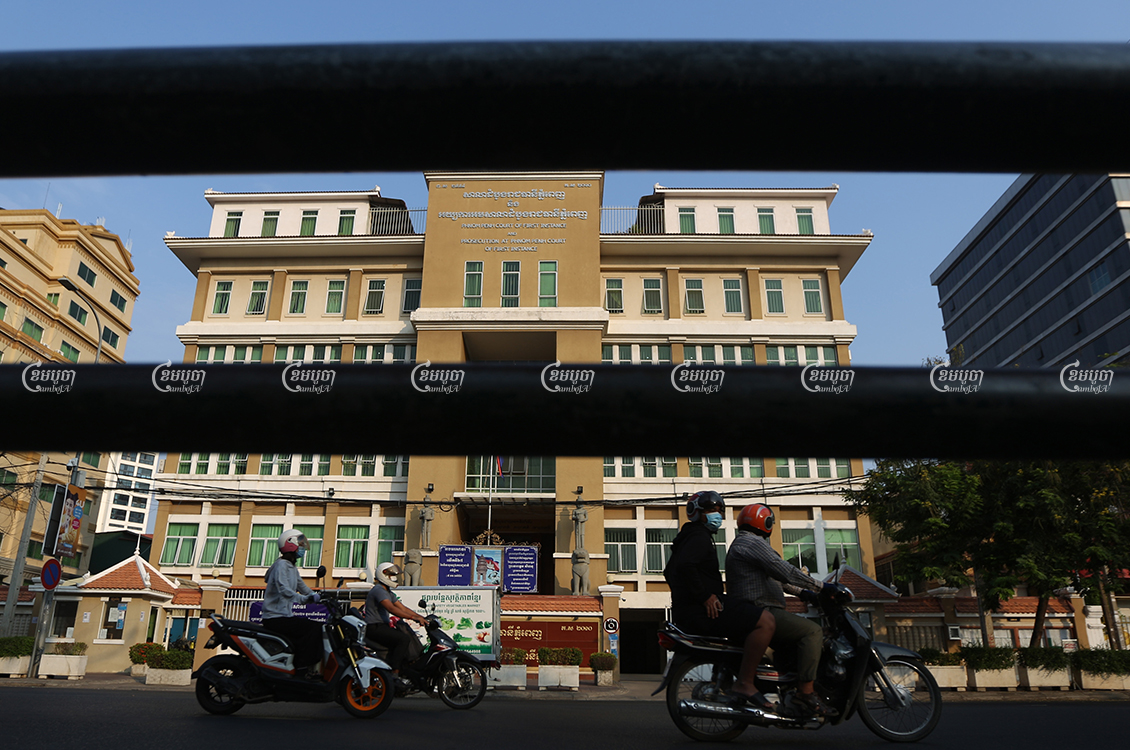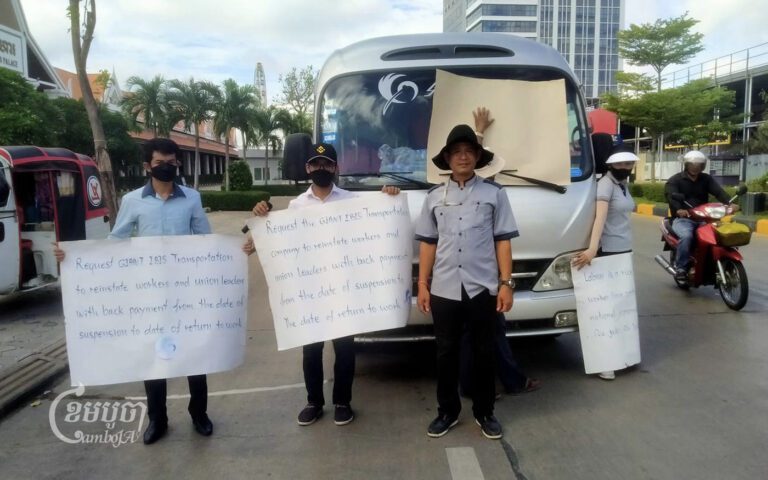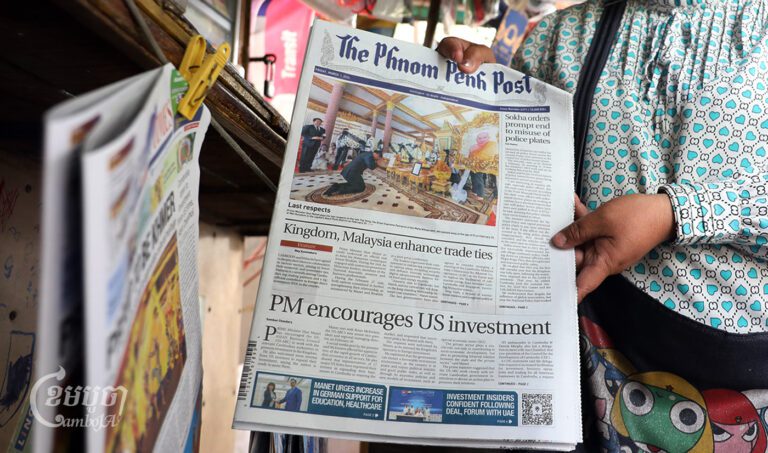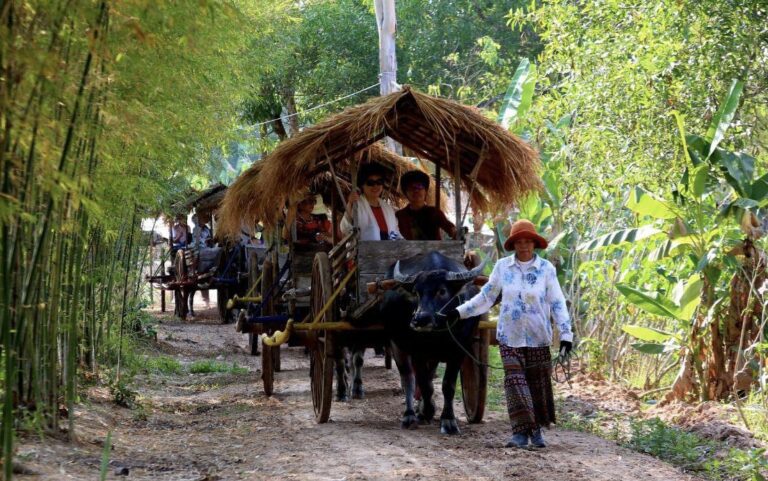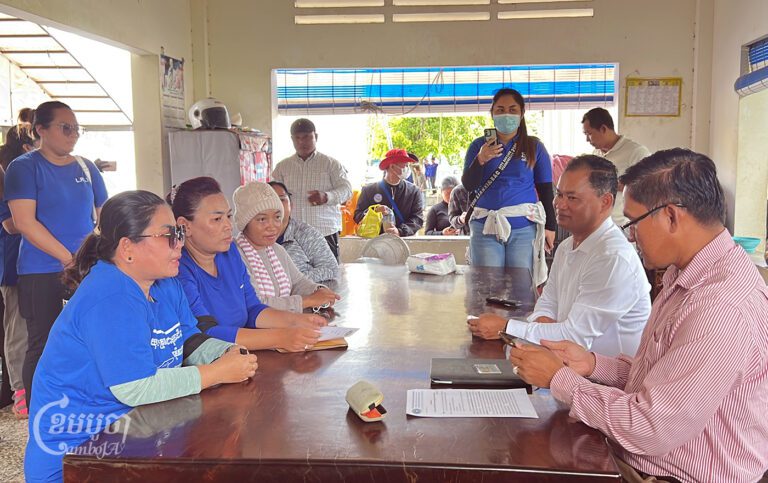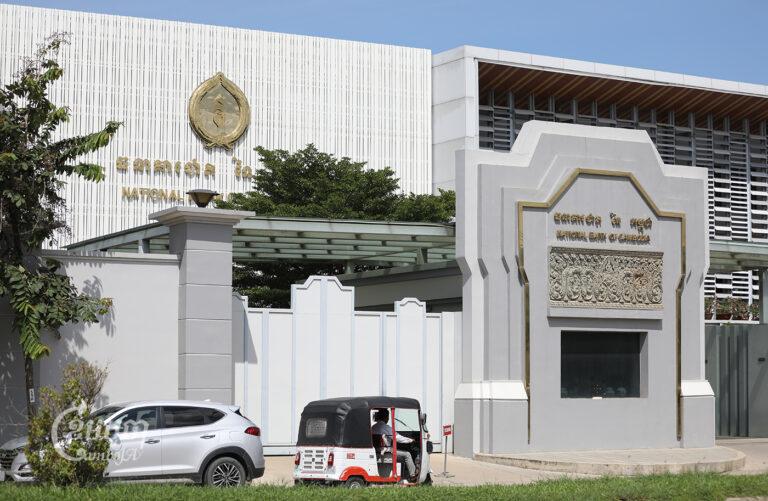The Phnom Penh Municipal Court and Kandal Provincial Court have temporarily suspended nearly all hearings during the lockdown, except for those related to violations of the lockdown order and the controversial new COVID-19 law. But rights monitors warned that the backlog in cases could lead to excessive pre-trial detention for many defendants.
Justice Ministry spokesman Chin Malin, said that the lockdown in Phnom Penh and Takhmao City meant that only the most urgent cases would go through — those related to violations of anti-COVID-19 measures.
“The trial and conviction of those who have violated [the rules to prevent the spread of] COVID-19 is necessary in order to educate and instruct people to respect and follow the measure together,” he said.
He said any delays taking place in other cases “is not as big a matter as the need to protect people’s lives from infection COVID-19.”
The Phnom Penh Municipal Court on Sunday began the trial of a former police major general and two other men who allegedly violated the lockdown order by gathering and drinking, but the trial was suspended while the defendant sought a lawyer. Ung Chanthuok, National Police deputy chief of staff, was a two-star general who was stripped of his rank and fired a day after his arrest Friday night, at the request of Prime Minister Hun Sen.
Taing Sunlay, director of the Phnom Penh Municipal Court, said that during lockdown the court has suspended trials in almost all cases but continues to accept COVID-19 related cases.
“We will consider cases that are necessary and urgent, we will implement the procedure, and other work has been temporarily suspended,” he said.
Sunlay said that cases related to the spread of COVID-19 will be sent to court immediately because those who violate lockdown measures are caught committing a “red-handed crime.”
“The rest of work [general hearing] has been suspended because we can’t leave home,” Sunlay said. He added that a small number of court officials remain on standby and the court would decide whether to hold trials on a case-by-case basis, including: “if there are some exceeding pre-trial detention, we will facilitate hearings in that case.”
Cases related to COVID-19 are taking place across the country, not only in the cities that have been locked down.
On Tuesday, according to a court statement, Kompong Cham Provincial Court sentenced a 50-year-old man, Yun Seanghy, to one year in prison under Article 11 of the new COVID-19 law, and for insult and obstruction of public officials, under Article 502 of the penal code.
The Preah Sihanouk and Svay Rieng Provincial Courts have also reportedly held trials in COVID-19 related cases, according to court officials who confirmed, but were unable to provide details.
In Takeo, the court on Tuesday sentenced four men to one year in prison each and fined each 1 million riels, under Article 10 and 11 of the new law. The group was arrested Sunday for gathering to drink and sing in violation of local rules.
Teng Samai, deputy prosecutor and spokesman at Banteay Meanchey Provincial Court, said that his court has prepared a courtroom for urgent cases related to COVID-19, equipping it with barriers to prevent the spread of the virus.
“A COVID-19-related case is a red-handed crime, and we would have enough evidence that we could proceed immediately, with no need to investigate,” Samai said.
He said that the court on Sunday charged a bus driver who transported passengers from Phnom Penh to Banteay Meanchey under Article 10 of the new law, and passed the case to the Health Ministry to set a fine.
Currently, the province isn’t under lockdown, and the court is proceeding as usual, but they have reduced the number of people who can attend hearings, he said.
Cambodia’s prisons hold nearly 40,000 inmates, including 8,000 in Phnom Penh’s Prey Sar Correctional Center 1 for men. Most of the nation’s prisons operate at double capacity or higher and more than a third of those detained have yet to be tried, according to the UN Special Rapporteur.
Chak Sopheap, executive director Cambodia Center for Human Rights (CCHR), expressed concern over the decision to temporarily postpone trials, in light of the dire prison overcrowding.
“It is our understanding that courts have been adequately equipped to prevent community infection,” she said. “If that is the case, all trials – not just those pertaining to violations of COVID-19 measures – should be able to go ahead.”
Giving priority to COVID-19 related cases would extend pre-trial detention of many accused, Sopheap added, and continue to subject them to prisons known for their infamously deplorable conditions.
“This would, in turn, lengthen the legal uncertainty many of them have faced for months and prolong their stay in overcrowded prisons,” she said.
She urged the government to reassess its current excessive use of pre-trial detention, and ensure it is only used as a last resort, in line with the presumption of innocence and international human rights standards.
Malin insisted the court system respected due process and was working to balance trial rights with the need to halt the pandemic’s spread.
“Processing backlogs are still going ahead, including to ensure the rights of defendants in line with the measures of the Health Ministry,” he said.


